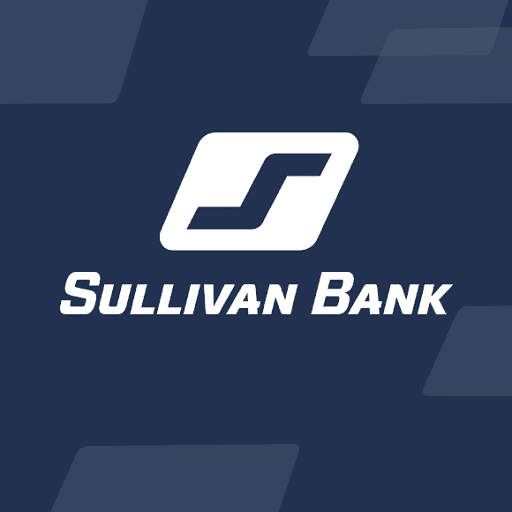
The Missouri-based Sullivan Bank will allow US customers to buy and sell Bitcoin with Bakkt’s Crypto Connect mobile app. The US bank is optimistic about the future of Bitcoin and believes that it can help them to offer better solutions for their clients.
Customers of the US will be able to own BTC in their checking accounts
Through the partnership, Sullivan Bank customers will be able to buy, sell and hold Bitcoin without leaving their banking app.
Mallory Farrell, COO of Sullivan Bank, believes that:
“Bakkt’s innovative platform will facilitate this new capability within our existing banking platform and customers will be able to view their crypto balance alongside their checking and savings balance all in the same place”
Sullivan bank represents one of the first banks to do this, but it is widely-believed that most other banks will be forced to adopt some sort of Bitcoin strategy for their clients going forward.
Indeed, most banks already offer some services to their HNWI clientele, but are still figuring out the best way to make product offerings to their other clients.
Unclear whether non-custodial wallets will be supported
One of the things that hasn’t been clarified by the bank is whether or not users will be able to withdraw their Bitcoin their own custodial wallets.
Self custody is a key feature of Bitcoin, and allows for the removal of middle men that in this case most directly affects banks.
Wallets with Bakkt are insured up to $125k
However, self-custody isn’t for everyone, and it is perhaps unrealistic to expect that the overwhelming majority of people will subscribe to the utopian ideals of Bitcoin maximalists.
It is far more likely that the majority of institutions, corporations and retail investors will benefit from h having others custody their Bitcoin and safeguard it for them. Sullivan Bank will not only custody Bitcoin their users using a mix of hot wallets and cold wallets, but they also guarantee that their customers are insured on their first $125k in Bitcoin.
Unlike with fiat, where banks have historically either not honoured their claims about how customers are insured or having required bailouts from governments thanks to their profligate spending, it is easy to know how much Bitcoin each bank has – everything is verifiable on the blockchain. Even if the companies do not wish to disclose all the addresses that they control, it should be easy for their auditors to verify that nothing untoward is happening.
The adaptation of banks
In the first Bitcoin block that was mined, Satoshi encoded the message from the headlines in the news that day: “Chancellor on the brink of second bailout for banks”.
From the outset, Bitcoin was a technology that allowed people the opportunity to opt out of the current fiat system with all its excesses and risk, and to revert to something simpler and more secure.
Now that the technology is so widely adopted and so mainstream, banks can no longer ignore Bitcoin. They must either adapt and cater for their clients who wish to use Bitcoin, or they will lose relative financial influence.
Naturally, this still means that there will be a “race to the bottom” in terms of fees as banks compete to retain and acquire more clients by offering better services with lower fees, more utility, greater insurance, help with compliance, etc.
Sullivan bank isn’t the only company that is making steps in this direction. All over the world there are banks who are already experimenting with Bitcoin and finding ways to implement it into their business models.
Large banks in Italy, El Salvador, Australia, and Germany are all pivoting to ensure that they can offer the best services possible to their clients. In countries such as El Salvador, where Bitcoin has now been made legal tender, the banking sector has been forced to recognise that it is imperative that they adapt with the zeitgeist, lest they become obsoleted.
How could DeFi change banking?
There are other ways that the world of crypto could irrevocably change the world of banking.
Smart contracts have facilitated the DeFi phenomenon, a world in which financial transactions are extremely fast, often more decentralised than they are now, completely transparent and auditable, and much more difficult to reverse.
The world of banking is currently extremely opaque, and requires customers to trust their banks, since they have little other choice.
If banks were to use blockchain technology more in the future to improve their operations, people wouldn’t need to trust their banks as they could verify in real time what they were doing.
It would be extremely difficult for banks to justify fractional reserve banking in a system where everyone can see the leverage in real time – new tools on DeFi Pulse show people the exact prices at which liquidations will occur, and allow people to prepare accordingly.
Related:
- Can TikTok Really Log Your Keystrokes? Yep, it’s for ‘Troubleshooting’
- Bitcoin Price Prediction 2023 – 2040
- How to Buy Bitcoin ETFs
- How to Earn Free Bitcoin – 12 Ways to Earn Free Bitcoin Instantly
Tamadoge - The Play to Earn Dogecoin
- '10x - 50x Potential' - CNBC Report
- Deflationary, Low Supply - 2 Billion
- Listed on Bybit, OKX, Bitmart, LBank, MEXC, Uniswap
- Move to Earn, Metaverse Integration on Roadmap
- NFT Doge Pets - Potential for Mass Adoption